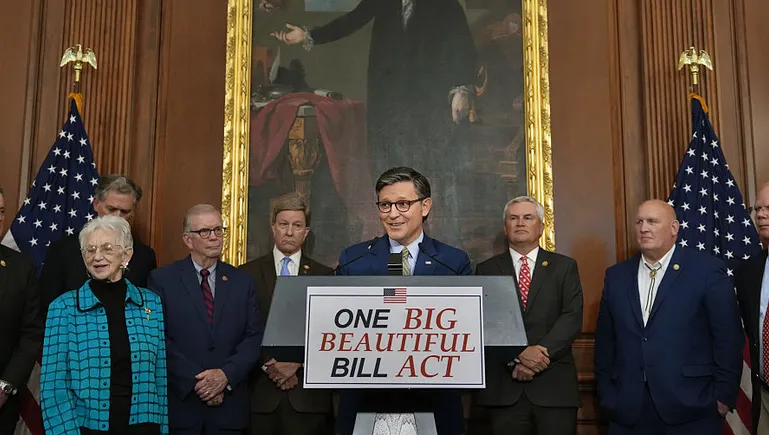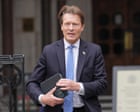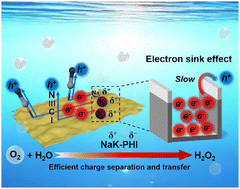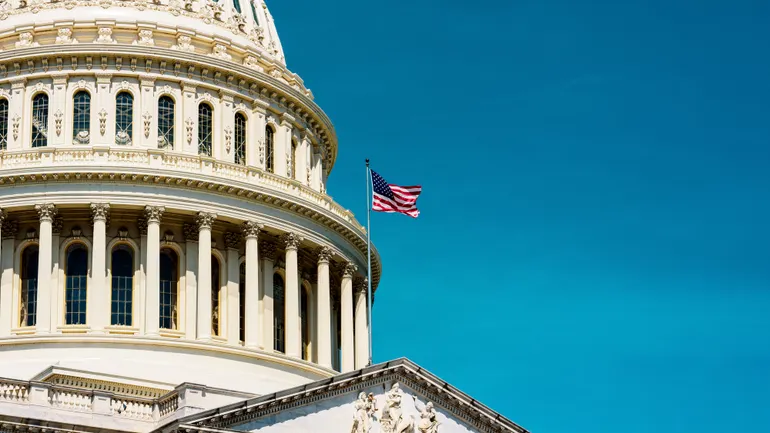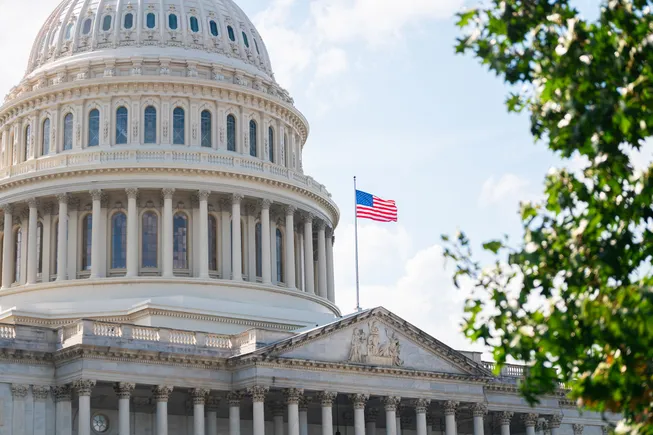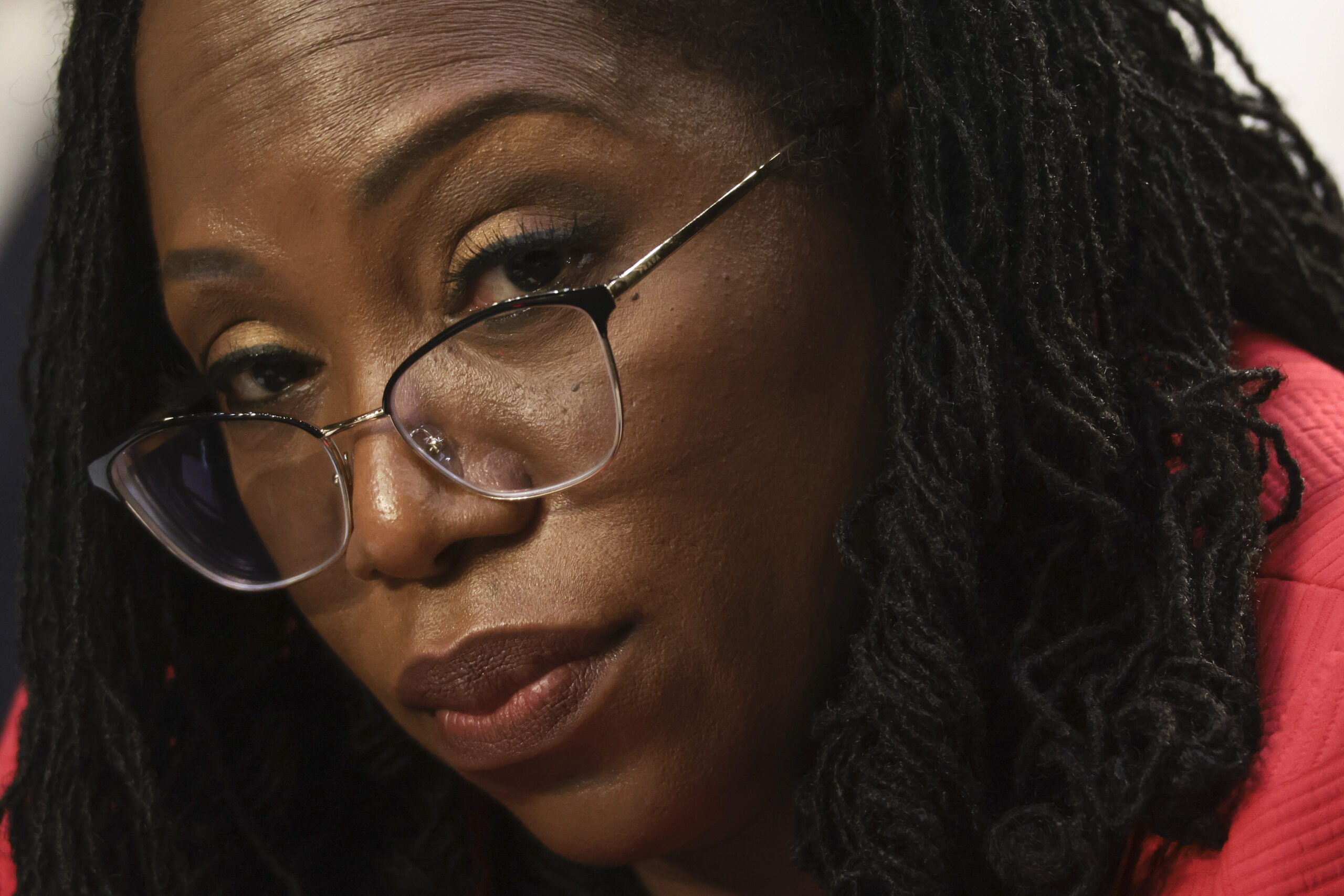Trump’s Biglaw Bootlickers Say Quiet Part Out Loud In Letters To Congress
Congressional oversight met with gaslighting, paywall references, and pro bono puppetry as Biglaw firms explain their ethical contortions. The post Trump’s Biglaw Bootlickers Say Quiet Part Out Loud In Letters To Congress appeared first on Above the Law.
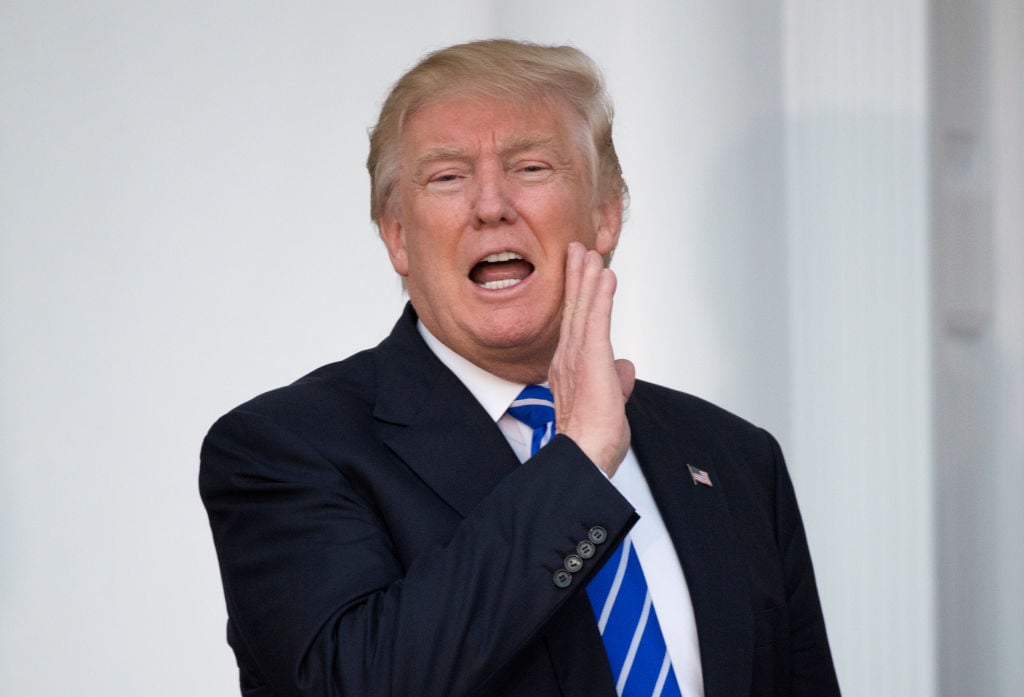

In April, the nine Biglaw firms who settled with the Trump administration to the tune of a combined billion in pro bono payola received inquiries from legislators over the legal and ethical problems raised by the deals. Essentially, how can the firms remain adamant that they did nothing to merit a retaliatory executive order — in the case of most firms, before any such order even existed — and claim that the deal is anything but an ethical compromise to illegal government extortion?
It’s one thing to settle “without admitting or denying” a violation, and it’s another to bind firm operations to the government over violations that never even materialized.
On May 6, the Bulwark reported(Opens in a new window) on some of the firms’ responses to inquiries from Sen. Richard Blumenthal and Rep. Jamie Raskin that more or less boiled down to “LOL, what pro bono deals?(Opens in a new window)” and furiously backpedaling that they’d given the administration anything at all. As they described it, they promised Trump nothing more than pro bono work they already planned to do and will not serve at the whim of the administration even if Trump publicly says that’s the deal(Opens in a new window) and issued an executive order explicitly deputizing the firms to work on police brutality defense(Opens in a new window). But the firms implied that they would simply not abide by such a request from the government.
Yeah, let’s see how that goes for you when you tell Trump you’re not giving him what he bargained for(Opens in a new window).
Another query, spearheaded by Rep. David Min and Rep. April McClain Delaney, also sought answers from the Orange Shoe firms(Opens in a new window), seeking more depth, specifically asking the firms to repudiate the deals on the grounds that such a deal:
(1) is unenforceable under contracts law; (2) would have enormous negative impacts on the legal system; (3) could potentially expose your firm and its attorneys to civil and criminal liability under state and federal law; and (4) creates potentially irresolvable violations of applicable Rules of Professional Conduct with respect to conflicts of interest and limiting an attorney’s future practice of law
Business Insider(Opens in a new window) collected all nine May 8 responses(Opens in a new window) to the Min and Delaney inquiry and while they largely reiterate the “LOL, wut” response previously reported, the letters offer a more comprehensive view of how these firms spin the unspinnable. Some are curt and insultingly dismissive of congressional inquiry. Others go into some detail with their “non-denial denials.” And yet none actually, you know, answer the questions.
When we say, “curt and insultingly dismissive,” we mean a response like this one from Quinn Emanuel representing Milbank:
On April 2, 2025, Milbank’s Chairman sent an internal email to firm personnel concerning the Agreement. That communication was picked up by the American Lawyer and continues to be available online. We respectfully refer you to that message…
They told congressional representatives that they wouldn’t answer their questions but they could go get an American Lawyer subscription and check out a reprinted email to staff. First of all, if it helps, we also reprinted the email at Above the Law(Opens in a new window) and we aren’t behind a paywall. You’re welcome. Second, they told congresspeople that they weren’t going to answer their specific questions and to look it up on Law.com! Assuming for the sake of argument that the email directly addressed all of the questions posed — it doesn’t — how hard is it to copy and paste? Does Quinn Emanuel charge so much by the hour that Milbank can’t afford to have the email turned into a letter?
Simpson Thacher also referred the legislators to an email but had the common courtesy to at least attach a printout of the American Lawyer article. Though, again, why not just include the email? Presumably Simpson still has custody of their own email… why post an article about the email? Do they think it lends credibility to say, “Hey, here’s an internal email that our lawyers are so fucking furious about that they leaked it to the press”?
Because it doesn’t really.
As an aside, the funniest part of Simpson using a printout of the American Lawyer story is that the last line is orphaned onto the next page, requiring them to include this…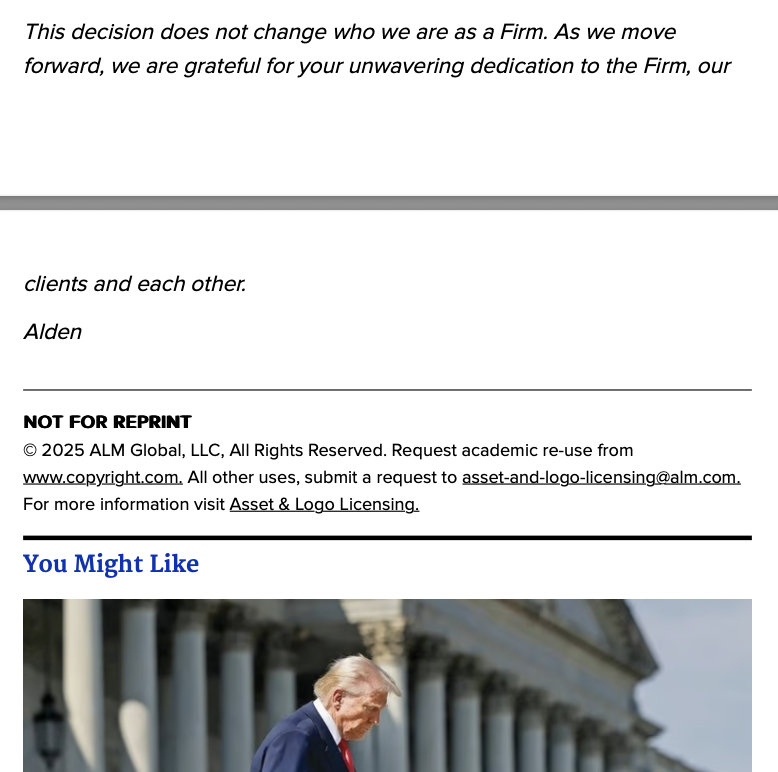
Yeah, if you liked that response you definitely might like Donald Trump.
Some (but pointedly not all) of the letters set the stage with a sob story about how they had no other choice but to agree to these deals. Paul Weiss, a rare firm among this cohort that actually HAD an executive order issued against it, stresses the “existential threat” posed by Trump threatening the firm:
Because so many of the matters we handle on behalf of our clients, across practice areas, require productive interaction and engagement with the federal government—and because many of our clients also value a productive relationship with the federal government and have significant commercial relationships with the federal government—we immediately understood that the effects of the executive order would destroy the firm, even if we ultimately prevailed in court.
Given that the firms who did NOT cave to the administration managed to quickly secure injunctive relief, it’s worth asking if Paul Weiss properly assessed the litigation landscape here. It was a fast moving and complex situation to be sure. All I’m saying is if you’re a client and they’re recommending that you settle to save the company, you might want a second opinion.
To the extent other firms engaged in such preamble, the letters lacked detail beyond affirming that they were worried about their obligations to their employees and clients. For example, Simpson Thacher writes:
In any event, as Mr. Millard’s email explains, in making the decision, the Firm’s primary goal was to protect the best interests of the Firm, including our thousands of lawyers and business professionals, and our clients.
Maybe don’t kick off by admitting that your “primary” goal didn’t include any ethical obligations. It can be in the “best interests” of both the firm and its clients to rack up bills facilitating a Ponzi scheme but I wouldn’t recommend it. At least Paul Weiss tried to flesh out the concern with concrete examples about being unable to conduct specific legal tasks if the order remained in effect.
Whether the firms tried to paint themselves as victims of circumstance or not, they all more or less sidestepped the specific questions posed by claiming there’s nothing to enforce — legally or ethically — anyway because Trump can’t deputize them to work on whatever he wants.
The deals with the firms involve slightly different administration asks, but mostly boil down to some form of anti-diversity pledge and a pro bono commitment. For Paul Weiss, the deal also included a specific “viewpoint” element:
The agreement reached on March 20, 2025 has three primary components: (1) reiterating our commitment to viewpoint diversity…
That’s not a thing. It’s a racist rhetorical frame(Opens in a new window) that conservative groups use to hijack the language and symbolism of the civil rights movement to demand preferential treatment for being bigots. “Viewpoint diversity” borrows from Martin Luther King Jr admonition that people “not be judged by the color of their skin but by the content of their character” and says “actually, we don’t want to be judged by the content of our character either.”
While not necessarily a function of their specific deals, some of the firms echoed this point. A&O Shearman described itself as, “a Firm of excellence, opportunity, and inclusion, where persons of all backgrounds, characteristics, experiences, and viewpoints are given every opportunity to thrive” managing to get viewpoints included in its new “not diversity, not equity, but sure maybe inclusion” model. Kirkland affirmed that “our lawyers span every belief, ideology, and viewpoint…” getting to the same sentiment without parroting the “viewpoint diversity” phrase.
A&O Sherman describes another category of pro bono work specific to their deal:
ensuring fairness in our justice system… indeed, much of our lawyers’ current and historical pro bono work centers on fairness in the justice system…
I don’t want to get all “meeting of the minds” here, but you guys realize that when the administration says “ensuring fairness in our justice system” they mean defending future January 6 rioters, right? They’re not exactly hiding the ball on this one… it’s the whole point of the police brutality executive order! The administration asserted that police brutality charges are an unfair abuse of the justice system and that you all have to defend them pro bono.
Even if the administration didn’t make this clear, how does a law firm bind itself to a category of work as hopelessly vague as “ensuring fairness in our justice system”?
The firms took different tacks when it came to the employment law ask. Paul Weiss writes that their deal involves:
committing to follow federal law with respect to our employment policies and practices…
Is that what you did, though? When, say, an SEC settlement includes a seemingly redundant “you agree not to be a criminal again” clause, it’s just to set up that the agency will come down even harder if the settling party screws up again. So was the firm agreeing to put itself in even worse shape if the EEOC comes calling again like with an SEC analog?
Probably not. As Cadwalader’s stab at this reads:
The commitment reaffirms our long standing dedication to merit-based hiring, retention and promotion practices that comply with anti-discrimination laws. The Firm has not and will not engage in illegal DEI discrimination or preferences.
That’s what’s really going on here. It’s not about committing to following employment laws, it’s about committing to “follow what Stephen Miller thinks should be the law.” They might be trying to communicate that they “won’t engage in diversity initiatives that are illegal” but trust that the administration reads that as “won’t engage in DEI… which we have decided by executive order is illegal” — a paucity fo textual or judicial support for that conclusion be damned.
Which is what makes these deals an assault upon the rule of law. The settling law firms are building a case for the administration that discrimination law means what it alone says it means because, look, all these sophisticated legal entities willingly agreed with our interpretation.
When the Supreme Court overruled Chevron and took away the deference afforded to executive agencies when interpreting statutes, not many expected the executive endrun around the problem to be “issue illegal retaliatory orders so extreme that businesses don’t go to court to challenge our interpretation.”
Points for creativity!
Finally, all the firms fall back to the logical pretzel that their pro bono work is limited to non-controversial charitable issues that, they claim, they were going to perform anyway. Paul Weiss explains:
the agreement does not (and could not) permit the Administration to determine what matters we take on.
It does, though. Even if the firm refuses the administration’s demand that it devote its pro bono time to defending law enforcement — per the executive order — or negotiate tariff deals, it already lets the administration determine what matters it takes on because it picks three areas and puts a dollar amount on them. The firm cannot now change its mix of pro bono work to fall below that limit, meaning that unless they’re cutting billable work — HA — they have committed to cut other pro bono projects if they ever have to choose. That might sound a little “fertile octogenarian(Opens in a new window),” but don’t suggest the deal did anything but give the administration the power to determine where pro bono money goes in the event of a conflict.
Skadden’s letter provides a breath of honesty on this point by admitting that, yes, they absolutely gave the administration power over what representations they take on:
Skadden will fund no fewer than five Skadden Fellows each year dedicated to the following projects: assisting veterans; ensuring fairness in our justice system; combatting antisemitism; and other similar types of projects.
If you believe viewpoint diversity is a real thing, this is more of a quota-based diversity policy than any real DEI initiative. In the zero-sum world of Skadden Fellowships, some projects will lose out to make sure Skadden meets its 5 Trump Fellow quota. Of course, Skadden ducks behind the caveat that this isn’t ordering any specific representation, but that’s semantic.
Beyond constraining their freedom in pro bono work, the deals have implications for paying work too that the letters naively refuse to address.
Willkie writes, “Nothing about the agreement… limits Wilkie’s right to control the client engagements that it accepts.” Latham claims that the firm, “continues to maintain its complete independence as to the clients and matters the firm takes on, whether in our pro bono or commercial engagements.” Kirkland says it “will determine which matters we take on—both pro bono and otherwise—consistent with our non-partisan mindset.” A&O Shearman indicated “the Firm fully intends to continue its longstanding and extensive practice of zealously representing clients who find themselves adverse to the federal government, in both paying and pro bono matters.”
HEY, GUYS! This all started with the administration attacking Covington because it represents former special counsel Jack Smith(Opens in a new window). In signing the order, Trump said “We’re going to call it the deranged Jack Smith signing or bill.” Representing clients “adverse to the federal government” is the precise situation that the administration has PUBLICLY ADMITTED will result in retaliation.
As for the legal and ethical implications of the deals, to the extent the firms acknowledge them at all, the treatment is perfunctory. O’Melveny’s letter on behalf of Willkie writes:
We also wish to allay your concern in the Letter that our client’s agreement with the Administration could somehow expose the Firm to criminal liability or violate the Rules of Professional Conduct. To be clear, there is nothing about the agreement that could plausibly subject the Firm or its attorneys to criminal liability, including—but certainly not limited to—under the series of criminal statutes cited by the Letter.
How did we not violate the cited rules and statutes? Oh, because “to be clear” we don’t think we did. We hope this allayed your concerns! You might think this is a flippant account of the letter, but that’s actually the end of the discussion. There is no effort at all to apply their account of the deal to the professional or legal requirements.
Simpson Thacher’s handling of the question proved even more blunt:
Your suggestion that the Firm may have violated federal law, state law, and rules of professional conduct in entering into the agreements is wholly without merit.
One of the most important practice points to internalize as a litigator is that adverbs imply weakness. If you don’t think the reader can be swayed by “is without merit” and need to answer “wholly” or “unquestionably” or “decidedly,” you’re just telling on yourself.
Bringing us all the way back to the very first question raised by the congressional letters: are these deals enforceable contracts? Because quibbling over the extent of their commitments and making conclusory assertions about the legal and ethical issues all cease to matter… if there just isn’t any reason for the firms to honor the agreements in the first place.
The closest anyone comes to grappling with this explicit question is A&O Shearman. Its response is… wild.
The complete terms of the Agreement are as set forth in the four numbered paragraphs of the President’s April ll, 2025 social media post.
Some of the most powerful law firms in the world agreed to be bound BY A SOCIAL MEDIA POST. Allow your lawyerly brains to wrap themselves around that concept and then scream into the void. Client relationships, attorney independence, compliance with discrimination laws as written… all placed in varying degrees of compromise over an agreement memorialized by social media.
That’s the whole thing. All of these firms, struggling to justify their decisions to surrender in the face of an abusive, illegal extortion effort manufactured from the White House, can’t manage to square the fundamental contradiction within their mealy mouthed excuse. Either the deal is an open-ended pinky swear to do whatever Trump asks to avoid further retaliation or it’s not a deal at all. To the extent some of these firms try to characterize the scope of their deals as passably legitimate, they’re all just inserting vibes. The actual “agreements,” such as they are, don’t have all these limitations — which we know because one side of this meeting of the minds can’t stop going out and publicly contradicting the spin these firms keep putting in their letters to legislators.
More simply, the takeaway from these letters is that firms are trying but they cannot have it both ways: they cannot say, “oh, but our agreement was clearly limited to these explicit line items” and “we kind of let a brain mush kleptocrat bind us with a late night shitpost.”
(Check out all the letters on the next page…)
Big Law firms double down on their Trump deals in letters to Congress(Opens in a new window) [Business Insider]
 Joe Patrice(Opens in a new window) is a senior editor at Above the Law and co-host of Thinking Like A Lawyer(Opens in a new window). Feel free to email any tips, questions, or comments. Follow him on Twitter(Opens in a new window) or Bluesky(Opens in a new window) if you’re interested in law, politics, and a healthy dose of college sports news. Joe also serves as a Managing Director at RPN Executive Search(Opens in a new window).
Joe Patrice(Opens in a new window) is a senior editor at Above the Law and co-host of Thinking Like A Lawyer(Opens in a new window). Feel free to email any tips, questions, or comments. Follow him on Twitter(Opens in a new window) or Bluesky(Opens in a new window) if you’re interested in law, politics, and a healthy dose of college sports news. Joe also serves as a Managing Director at RPN Executive Search(Opens in a new window).
The post Trump’s Biglaw Bootlickers Say Quiet Part Out Loud In Letters To Congress appeared first on Above the Law.








































































